
I
could never tire of interviewing an intelligent, witty, grounded and
engaging person like Matt Damon. His
last interview
for the recent box office hit THE DEPARTED, left me completely
enamored and impressed with the brilliant actor.
Having graduated from one ingenious director to the next,
Damon has again demonstrated the ability to actualize and execute
another challenging role in the upcoming film, THE
GOOD SHEPHERD,
thus illustrating his talent and gift for deception, and inviting
Oscar to buzz around again.
Damon’s
portrayal of a privileged young man, recruited to join a tight
brotherhood of tomorrow’s world leaders and assist in the birthing
process of an elite secret society otherwise known as the CIA, is
frighteningly cold, convincing and powerful.
His unassuming steel faced mask remains intact while giving
the audience a fascinating history lesson.
The film accomplishes its duty in exposing the real life of
the CIA. There is no doubt that following this performance, famous
directors will continue knocking louder and harder on this
highly-sought-after actor’s door.
See
what Damon had to say about collaborating with the great De Niro and
adapting to his captivating role as a CIA agent in De Niro’s epic
drama, THE GOOD SHEPHERD.
***
BEWARE OF SPOILERS
***
Matt
Damon

What
are the parallels between your life and this role, in terms of
trying to keep private life private?
Actually,
I don’t have a very hard time keeping my private life private.
There’s not that much interest. To me, what felt surreal I think,
was mostly at the beginning, going to work and working with De Niro
and being directed by him. That was intimidating at first and
ultimately surreal after and then basically leveled into, ‘OK, I
can deal with this,’ somewhere around probably the second month.
How
difficult was it to give life to a very unemotional character, to
make him human enough that the audience will want to watch this guy
for three hours?
Good
question. I was nervous about that and I think with another director
I would have given into my fear and indicated more and pushed it
more and been a little more over the top. The reality was that he
just insisted on absolute emotional honesty and subtlety all the
time, and he just refuses to… I think something that I certainly
have fallen victim to in the past is — because I’m also a writer
– you look at every scene and you deconstruct the script and you
go, ‘OK, this scene is in the movie for this reason.
The
audience needs to come away with THIS.’ As a writer, you can do
that, but as an actor that’s deadly. You can’t think in those
terms or else you’re going to end up just pulling faces and
indicating, and ultimately losing the movie because people don’t
believe what you’re doing. Bob was just insistent on absolute
naturalism and realism. He’s a student of human behavior. I’ve
never seen an actor as famous as him walk into a room and do what he
does, which is he just disappears. He absolutely disappears and he
sits there and he watches everything.
He
sees absolutely ever interaction, and the reason his work remains so
good and he remains so relevant as an artist is because he sits
there and he is constantly just downloading human behavior.
Oftentimes actors become famous and they end up doing imitations of
their own performances or imitations of what they think people might
do in certain situations. Very few of them sit there and do the kind
of rigorous observation that it takes to embody people in a subtle,
nuanced and real way. We’d have these conversations where I’d
say, ‘Well, I’m listening to him here,’ and he’d say,
‘You’re listening to me now. You’re not doing anything.
You
hear what I’m saying.’ You know what I mean? And to get
permission from somebody to do that… normally, a director is
telling you exactly the opposite because normally a director is
panicking that the audience isn’t going to understand, that the
audience is going to be confused. And Bob would not worry about
that. He would just say, ‘You play the scene for its absolute
honesty and moment to moment, and don’t worry about anything
else.”
So,
he was your model for your character who can disappear?
Yeah.
Yeah. I mean, in a lot of ways, yeah. And he also just gave me
permission to do that, which I was fighting against the whole time
because I’m not used to being able to do that, to be that subtle.
But of course the guy should be subtle. He’s the head of
counter-intelligence. Like what’s he going to do, tell you how
he’s feeling? I mean, it makes total sense when you think about
it. He should be reserved and he should be emotionally distant
because it’s very dangerous for him to be any other way.
Were
you in any private clubs at Harvard? Did you see the good old boy
network from the inside?
I
did. I was in the Delta club at Harvard and I did some of that,
although it has changed. Now, like the Skull and Bones, for
instances, this new generation of kids have gone through and they
have debunked all of the… I mean, now there’s a lot of writing
about the Skull and Bones. ‘OK, there’s this rite of passage and
there’s that and you have to do that.’ Starting with around my
generation people stopped taking, I think, all that stuff quite so
seriously, whereas in 1939 it was of the utmost importance. But
nowadays all of those secrets are kind of out in the open. So I
think they’re a little different now. Skull and Bones is co-ed
now.
You’re
having a hell of a year. The Departed is a huge hit and there’s
Oscar talk for that and for this. You’re a new dad and a
husband…
Just
another year really.
How
is being a new dad?
Great.
Great. That’s been just amazing. It defies description, actually.
I don’t really know how to talk about it because… I feel I got
made a member of a club I didn’t know existed. It’s just
wonderful. Other people’s babies; they were always showing me baby
pictures or trying to hand me the baby, and I was like get that f*cking
thing away from me. ‘I don’t want to touch your kid. Give me a
break.’ But I’m totally into it now. I was scared at first
because I was kind of excited for my daughter to be two. I was
excited for her to start talking and walking and toddling around and
hanging around, but I didn’t realize how much personality little
people have right off the bat. It’s just been fun.
What’s
your favorite thing to do with her?
Well,
she laughs. She has this laugh. You do this thing… you can either
give her one of (he makes a zurburt sound) those on the stomach or
you can munch under her arm – you go, ‘Whomwhomwhom’ – and
she goes ‘Aaaacchhhh, aaaaaccchhhhh.’ It’s just the funniest.
She sounds like a little machine gun. She, in particular, is really
in a hurry to kind of grow up because she’s got a big sister and
she’s got cousins, and when they’re all in a room she just sits
there and watches them. She wants to play. You know how babies, they
can’t (he goes through this whole set of visual reactions).
Ben
told us he wasn’t trusted making food at the beginning with his
kid. Did you have any similar problems?
Well,
she’s just on solids now. So, I mean, it’s just mushing a
banana. It’s nothing too hard.
Ben
said he couldn’t even do that…
Oh
really? Like he’s just going to give her a full forkful of
spaghetti or something? We’re just starting on solids now, so that
question hasn’t come up yet.
You’re
working on the third Bourne film now. Does doing something like The
Good Shepherd change the way you look at Bourne and that film
series? And also, can you talk about playing a killer. Apparently
one actor passed on your role because of the extreme actions of your
character…
Yeah,
Eric told me that, Eric Roth, the writer. I didn’t know that, but
in an early draft of the script, he threw his own son out of the
plane. And Eric went, ‘Maybe that’s too much.’
But
were you worried the character was too unsympathetic? He lets and or
watches a lot of people die. He’s pretty ruthless…
Well,
nobody sees themselves as ruthless. If you look at it from his point
of view, if you look at the stakes of the game he’s playing,
you’re talking about the middle of the Cold War, and in his mind
he’s doing things to stop huge conflagrations. It’s like,
‘World War III is going to happen if I don’t do what I have to
do.’ These tough choices have to be and he’s the good shepherd
and he’s taking care of his flock. And he’s sacrificing,
essentially, his own soul to make those decisions. That is another
way to look at it. It doesn’t affect the way I think of the Bourne
character because they’re very character.
To
me, the Bourne character allows me to do… In between these two
Bourne movies I did Syriana, Departed and Good Shepherd. Departed,
at the time I signed up for it, it was thinking that it was not
going to be a hit because Marty, classically, his movies don’t
make a lot of money. So I felt like, book ended by the Bourne
movies, I had a chance to make the movies I really wanted to make,
that maybe were a little more challenging. Syriana certainly was
kind of a more challenging story and I was really happy to be able
to be a part of it. I’m really proud of that movie.
Departed,
obviously, just surprised all of us, how well it’s done. And then
this, which is kind of epic, but it’s a tougher sell when you’re
talking about getting a mass audience to the movie. It’s longer.
Departed is over two and a half hours, also. But, as you say, the
lead character, the protagonist, I’m not out there trying to get
sympathy, elicit sympathy from the audience. It’s a tougher
character, which I really like. I really like that kind of
challenge. I have a real limited chance to choose certain movies and
I’m happy with the choices so far, because I think they’re a
little more challenging. And it doesn’t last forever. You guys see
everybody come and go. I know the deal. I’ve been around. It’s
like you breathe this rarefied air for a real short time and then
there’s an ebb and flow to everything. Particularly with the
choices I make and the material I tend to be drawn to, I can’t be
up here for long.
Update
on The Bourne Ultimatum? Can Jason ever be happy?
Yeah,
that’s a good question. Well, we’re almost halfway through. I don’t
know if that guy can ever be happy.
Does
he know who he is?
Well,
he will by the end of this one. I don’t know how long we can ride
that pony. I’d like to think- – maybe he’ll get a bump on the head
at the end or something.
So
how’s it going?
Really
well. Paul’s directing it again which is a huge. I mean, that’s the
reason to do it because he’s really just a great filmmaker. We have
a story and we have a story to tell. But looking at it, to be fair,
we go, Okay, I think this should be the last one because I’m half
joking, but how long can you- – his search for identity is
definitely going to come to an end.
Maybe
in 20 years do a Stallone return?
I
would love that. If I’m like 100 pounds heavier, ‘They pulled me
back in! They won’t let me go!’ They’re like, ‘No, we don’t give a
shit about you. What are you talking about?’ Yeah, I think that’s
actually probably the only way to do another Bourne movie would be
to do it 20 years down the road.
Who’s
the girl this time?
There’s
no- – well, I mean, Julia Stiles is in it and Joan Allen’s back
also. Our Bourne Girls.
Why
do you think there’s a limit to your career? Seems like you’ll
continue to be successful.
I
really hope you’re right. I’ve just always been very, very cautious
because it doesn’t last. I think- – I’ve just never wanted to get
swept up in it because then you get lazy or you start making safer
bets or you start to try to protect your beachhead and that’s kind
of a recipe for disaster. And I think it’s healthy to look at it as
something that is kind of always in transition, because that is the
way that the industry is looking at its actors. We are like
commodities kind of. It’s not something you should take for granted
because it’s not by any kind of right that it’s going to be there.
You really have to keep proving to the financiers that people want
to see you in movies or they just won’t bankroll the movies.
Working
with DeNiro, were you aware of how he was shooting you?
Yeah,
and it’s also Bob Richardson is one of the best DPs. He’s really
incredible and they had conversations about the look of the film and
what they wanted to get and I’m sure shot me differently depending
on the year. Because we didn’t do a lot with makeup. We did a very
little bit but little things, shaved my hairline back a little bit
and then added to it for the 1939 stuff, but really subtle. You’d
have to kind of look for it and a little bit of aging stifle around
the eyes where you can see mostly in the one shot where I have the
magnifying glass, there are some wrinkles that are makeup and that
look really good.
But
he doesn’t want to do anything more than that because he didn’t want
anything to distract. He felt like it was an internal thing. And
also because the character is only 41 or 42 years old. I’m 36 so I
have much further to go to get to Yale than the other way. But then
there were the things with the glasses, those glasses had a real
prescription, so I’d wear a negative prescription contact lens and
then put the glasses over because Bob, again, it’s all details with
Bob. He wanted, if it was an over the shoulder shot and you were
catching just a piece of the glasses to see that there was- – and
that stuff, it’s like the incremental effect, it’s like the
aggregate effect of all those things added up makes you go, ‘Okay, I
believe what I’m watching.’ I’ve heard these stories of him from
prop people.
On
The Departed actually, the prop guys said that the last time they
worked with DeNiro, he came in to look at, it was like a little
prop. I forget what it was. It was just a little trinket, like a
cigarette case or something like that. He had come in on his day
off, ‘Do you have that cigarette case?’ because he just wanted to
hold it and touch it and see if he liked it. Then he’d go, ‘Yeah,
okay, that’s good.’ And everything was like that. Every detail was a
performance. The hat, if I wore a hat, he would come and he would
touch the hat. He had a very particular thing about hats and how to
wear a hat. If he would see an extra, he would just go, ‘That’s
wrong.’ And he’d go and he’d fix their hat. It’s just every little
thing like that was of absolute importance to him.
Nothing
got spared, which maybe to his detriment at times. I mean,
Soderbergh said to me that a big part of directing- – this is what I
am, a collection of things people have said to me, but what he said
was ‘A great thing to know about directing is every scene does not
have the same importance. And when you shoot it, you can’t place the
same weight on it or else you’ll end up doing 110 18-hour days,
which is what we ended up doing on Good Shepherd. But Soderbergh
just says, ‘No, you gotta know this scene is just getting you into
that scene.’ He cuts in camera. It’s a very different thing, whereas
working with Bob it’s just every single detail was poured over and
just- – I mean, the amount of work that went into this movie is just
really incredible.
And
every department too. It was one of those movies that they were
saying to me halfway through, ‘This is already a legendary movie in
the New York circle.’ These prop guys who were the sons of the sons
of the sons of people who have been in the prop business are
talking, ‘Oh, you were on the Shepherd.’ This is a movie that just,
we would start at five in the morning Monday and we would finish at
five in the morning Saturday, and that was our five day week. Just
keep getting pushed and pushed and pushed. It was really grueling,
but all of those things, the angles that he shot me at was I’m sure
the subject of great discussion between he and Richardson.
Because
nothing was left- – there was no stone left unturned. I think the
other thing was that he didn’t- – to leave after a 12-hour day to
him would have felt like he wasn’t taking advantage. If he had money
to shoot and it was for a certain amount of time, and he was going
to use every second. And they were going to have to come and take
the camera away. There were times when I had to write a check back
so that while we were in the Dominican Republic, because they were
trying to take the cameras, and we had more shooting to do. It was
just one of those movies.
He
gave all of his money away. He’s in the movie and doesn’t take a
paycheck so that it goes back into the [budget]. So that way he
saves the money from casting the role, also he plays the role and
they get the [star power] so it drives up the cache of the movie and
then the money goes back into the budget. Everything was going back.
It was all about the final movie getting done the way he wanted it
to get done.
You’ve
looked at life through the prism of secrecy in the past five films,
so what are you insights into secrecy?
Yeah,
certainly in these times, it’s an interesting discussion to be had.
I wouldn’t want to point it too much or- – Bob does point out and
Gus Van Sant has said this to me many times, that you have to let a
movie find its own metaphors and you have to let an audience- – I
remember after he showed me Elephant, he screened it for me in LA
and I was just sitting there alone and I was just blown away by it.
I went to Gus and I said, and I knew he would never say anything
about it because he wanted me to draw my own conclusions about the
film and it was really hard to draw out, and he’s a good friend of
mine.
I
said, ‘All right, why is it called Elephant?’ And he said, which I
knew exactly what he was going to say, ‘Why do you think it’s called
Elephant?” and I said, ‘Well, I think it’s called Elephant
because this kind of violence and this increasing desensitization to
violence is like an elephant in the room in our society where we’re
refusing to address it.’ And he looked at me and went, ‘Oh, that’s
good, I never thought of that.’ So I will answer the question, I’ll
try and elide a little bit because I don’t think there’s only one
answer. But I think in the day and age we’re living in, where we see
the foundations of our democracy being eaten away at, gnawed away at
by secrets and by things happening in secret, by a lack of
transparency I should say, I think it’s good that there’s a movie
out there where that can be a topic of discussion for people.
And
certainly these are all- – it’s a really well- – this time period, I
mean, I’ve read a lot- – Bob has been researching it for so long
that I said, ‘All right, do you have anything I can look at?’ and I
got a pile of books from him which were really interesting but it’s
a really well documented time because these guys, Angleton, all
these guys who came out of Skull and Bones and into OSS and then the
formation of the CIA and then got in the Iran in ’53 and Guatemala
in ’54, these guys must have felt like it was manifest destiny by
the end of the 1950s.
They’d
never suffered a loss. They were on top of, they were making the
world. And that kind of power is really dangerous and turned into
what happened in Vietnam and then into the ’70s. We end at the Bay
of Pigs. Bob’s great hope is to do a second movie from the Bay of
Pigs until now because he’s always thought of them as all of a piece
and this is only kind of the first part of the story, when these
bluebloods came and rose up from their pissing contest to these
positions of unbelievable, unchecked power.
When
will you write again?
I
don’t know. The acting roles have just been so good and all these
people I’ve been able to work with. But Ben and I have been talking
about it. There’s one project in particular we’re really interested
in and maybe directing together, so that’s one thing we’re looking
at. And he just directed Gone, Baby, Gone and I’ve seen pieces of
it. It’s just fantastic. Casey’s really great in it and Casey’s
great in Jesse James actually too. It’s going to be a good year for
Casey I think.
Working
with Angelina?
Working
with Angie, I was just talking to somebody about this upstairs, I
also experienced working with Brad too, like just this unbelievable
extra thing that they bring with them which I wouldn’t wish upon
anybody which is camped outside the hotel right now, are 25 to 50
photographers just waiting because she’s in this building. And that
would happen, we were shooting at the armory over in Brooklyn. I’d
know when she was working because I’d come to work and there would
be all these people there.
But
once we were inside, she and Brad both have this unbelievable
ability, and I’ve talked to Clooney about it and Clooney’s like, ‘I
could never do this. It would just eat away at me.’ But they just
leave it. They just leave it behind them. We’d get into rehearsals
and she was so good in this movie and so different from anything
that she’d done, I just remember thinking, ‘God, that’s why this is
all happening in the first place.’ You get so caught up in all this
celebrity stuff, they’re everywhere and you forget that there’s this
reason underneath all of it is she’s an incredible actress. And I
don’t know how she handles that stuff. I definitely just couldn’t do
it. I wouldn’t be able to do it. But as George always says, in terms
of Brad, he says, ‘That’s why he’s Brad Pitt.’ I couldn’t do it.
He
said you’re mad over Sexiest Man Alive.
Yeah,
I mean, this year I’m going to get a whole war chest. I’m going to
really save my money. His quote that I really liked was he said I
was close, I just ran out of money at the end.
Is
there one piece of advice De Niro gave you as an actor?
Good
question. I don’t know that there was one. Kind of what I was
talking about at the beginning about that kind of permission not to
indicate was a very big deal, just because it’s so much easier to
indicate and we’re so used to, I mean, like the performances you see
normally I think as film audiences, we’re used to seeing people
overact. It’s like [sniffling loudly, choking back tears] like who
does that?
You
go back to the ’70s and you look at some of those movies, and maybe
it’s just the directors had so much power then, a movie like Dog Day
Afternoon, I always use that as an example. Today, imagine a studio
film getting made where they said, ‘Okay, you rob a bank because
your boyfriend needs money for a sex change operation.’ They
wouldn’t make that movie really but it’s one of the great films ever
made and there’s things that the actors do in those movies. They’re
just so subtle and their performances are so incredible but today, I
just don’t think this generation of actors has a tendency to just
push it a little more. So I think I took that away definitely. You
have to really be feeling things and thinking things but I’m going
to try to resist my urge to indicate in the future.


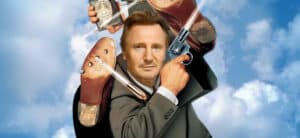

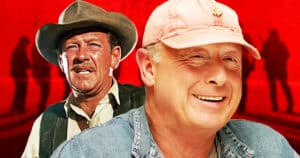

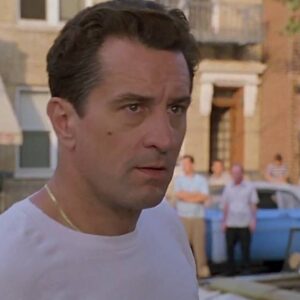

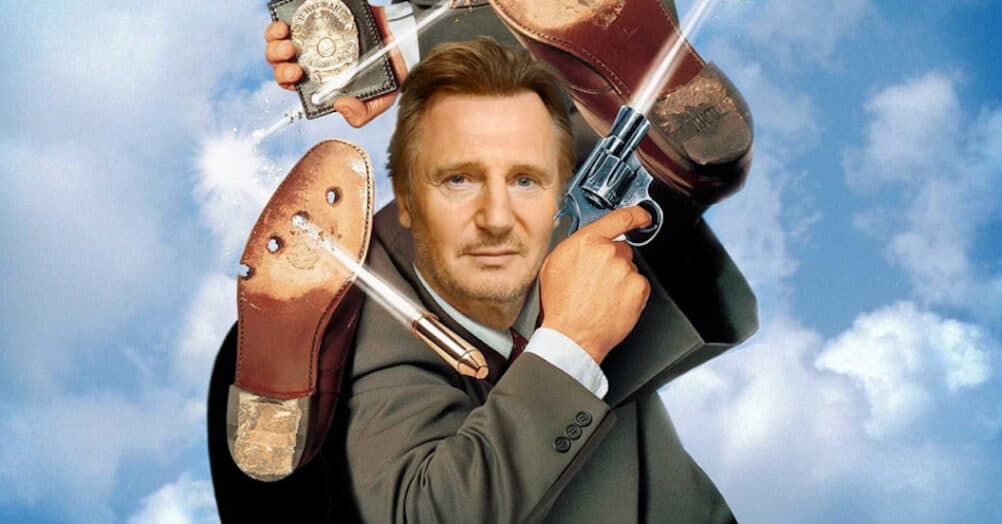

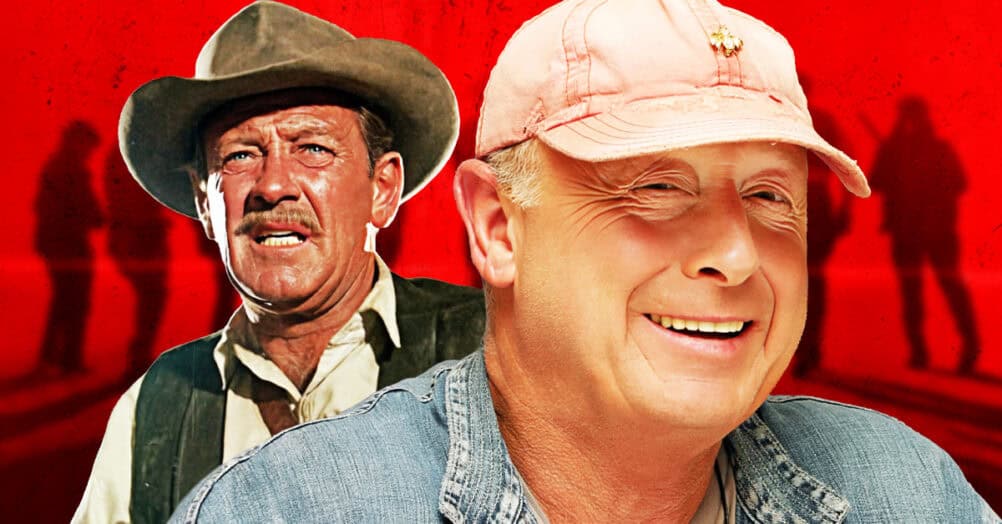
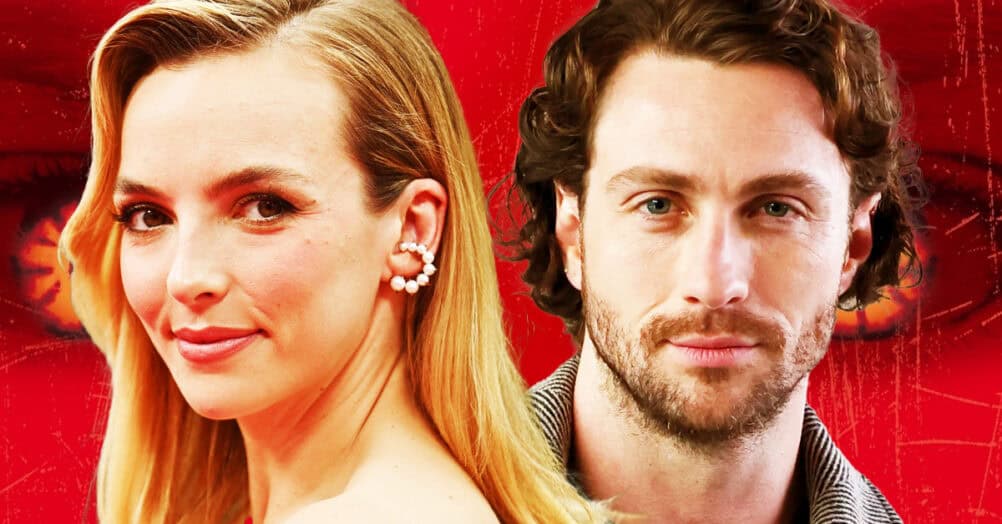
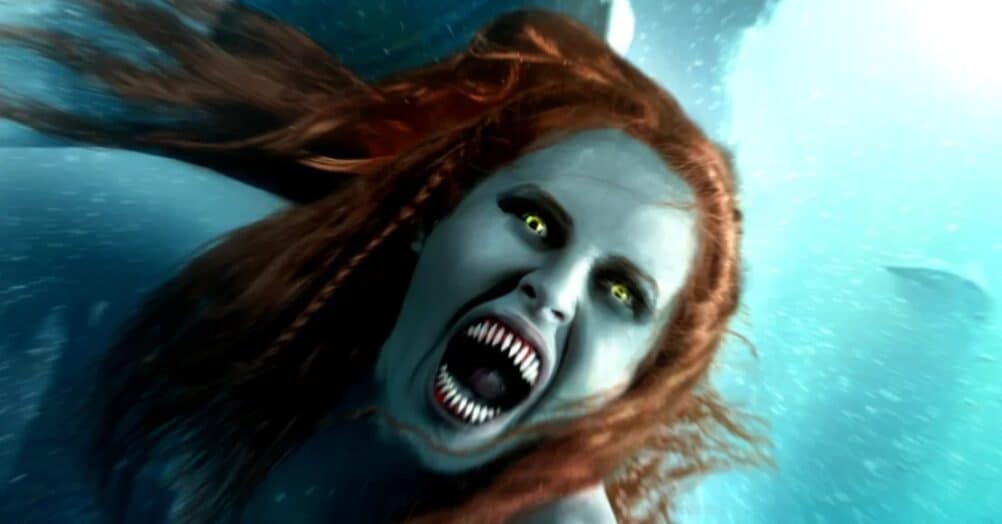
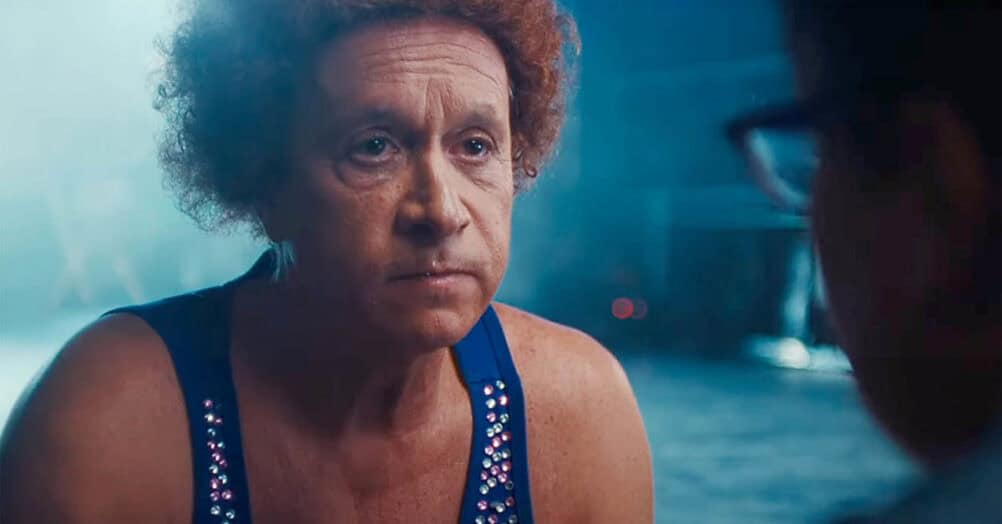
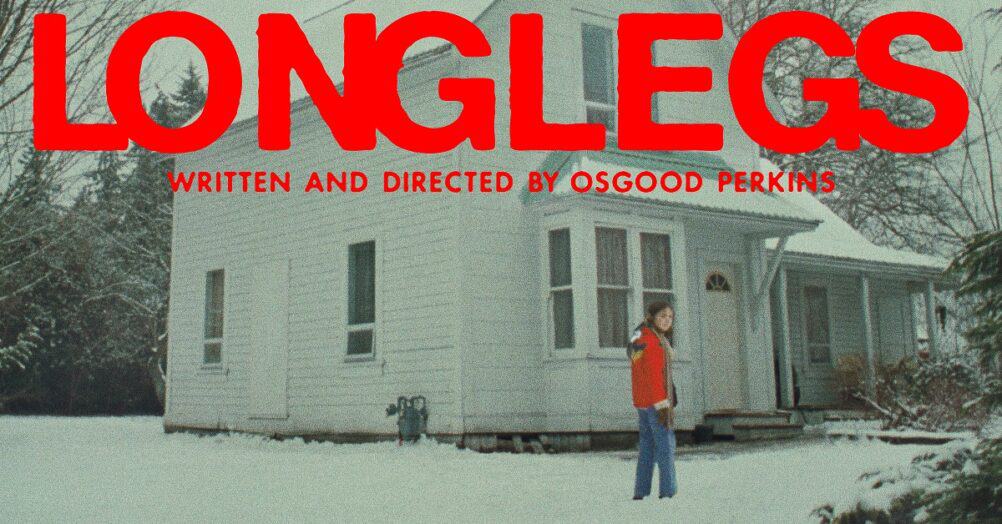
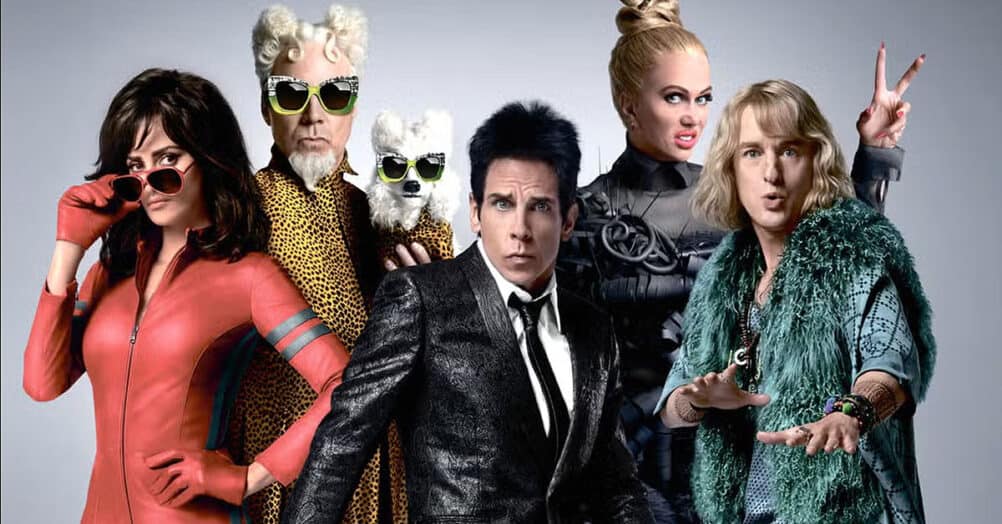
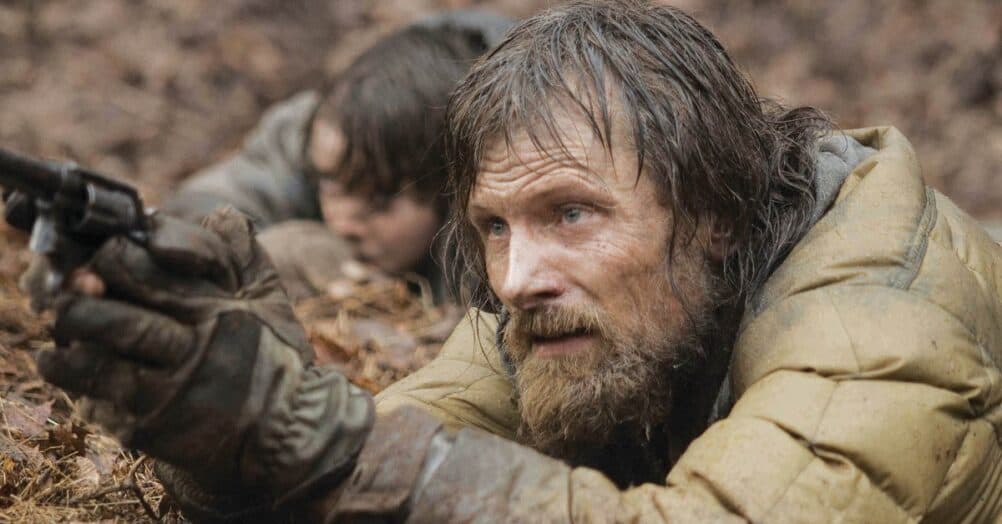

Follow the JOBLO MOVIE NETWORK
Follow us on YOUTUBE
Follow ARROW IN THE HEAD
Follow AITH on YOUTUBE